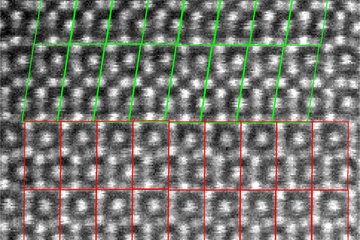All genres
121.
Poster
Simulation of a dense suspension of deformable particles using the lattice Boltzmann method. ICMMES 2009, Guangzhou, China (2009)
122.
Poster
Bottom-Up Approach for Modeling Blood Flow in Microscale Vessels. International Workshop on Multiscale Materials Modeling 2009, Berlin, Germany (2009)
123.
Poster
Bottom-Up Approach for Modeling Blood Flow in Microscale Vessels. MSMMS, Jülich, Germany (2009)
124.
Poster
Large scale dynamics in a driven simple glass. The XVth International Congress on Rheology, Monterey, CA, USA (2008)
125.
Poster
Lattice Boltzmann studies of confined flows at intermediate Reynolds numbers: The role of wall roughness. The 5th International Conference for Mesoscopic Methods in Engineering, Amsterdam, The Netherlands (2008)
126.
Poster
Stability and kinetics of droplets: A free energy based lattice Boltzmann study. DPG Spring Meeting of the Condensed Matter Division, Berlin, Germany (2008)
127.
Poster
Stability and kinetic of droplets: A free energy based lattice Boltzmann study. Sommer Workshop on Nano-& Microfluidics, Bad Honnef, Germany (2008)
128.
Poster
Non equilibrium flow on gradient surfaces: Theory and experiment. Sommer Workshop on Nano-& Microfluidics, Bad-Honnef, Germany (2008)
129.
Poster
Chaotic flows in microchannels: A lattice Boltzmann study. The NSTI Nanotechnology Conference 2006, Boston, MA, USA (2006)
130.
Poster
Yield stress discontinuity: A manifest of the glass transition in a sheared glass. 369th Heraeus-Seminar, Interplay of Thermodynamics and Hydrodynamics in Soft Condensed Matter, Bad-Honnef, Germany (2006)
131.
Poster
Shearing glassy model systems: A test of theoretical predictions on non linear rheology. 6th Liquid Matter Conference, Utrecht, The Nederlands (2005)
132.
Poster
Unstable microscale flows: Surface roughness effects. 6th Liquid Matter Conference, Utrecht, The Nederlands (2005)
133.
Poster
Confinement effects on the slow dynamics of a simulated supercooled polymer melt. International workshop on dynamics in viscous liquids, München, Germany (2004)
134.
Poster
Flow Properties of Polymer Melts: A Molecular Dynamics Study. 5-th Liquid Matter Conference, Konstanz, Germany (2002)
135.
Poster
Shear Banding in a Binary Lennard-Jones Glass. 8èmes Journées de la Matière Condensée (JMC 8), Marseille (2002)
136.
Poster
Flow Properties of Polymer Melts: A Molecular Dynamics Study. The Physics Congress, Brighton, UK (2002)
137.
Poster
Glass Transition in Polymer Films: A Molecular Dynamics Study. International Conference on Computational Physics (CCP), Aachen, Germany (2001)
138.
Poster
Propriétés statiques et dynamiques des couches minces de polymères. Les Journées de Rencontre Nationale sur les propriétés des verres, Montpellier, France (2001)
139.
Teaching
Computer aided modelling of wetting phenomena: Theory and application. Lecture: RWTH Aachen Sommer Semester 2008, Aachen, Germany, 2008
140.
Teaching
Lattice Boltzmann simulation of non-ideal fluids. Lecture: RWTH Aachen Winter Semester 2007/2008, Aachen, Germany, 2008











